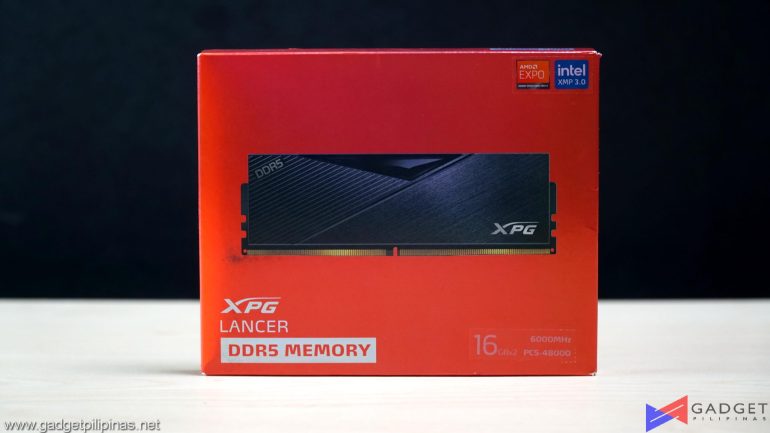DDR5 has gone down in terms of pricing as the DDR5 platform matures with higher speeds and non-binary memory modules being released in the market. However, these new highspeed kits and large-capacity DIMMs are considered overkill for most people. So, that’s why we’re checking out the Adata XPG Lancer 32GB 6000MHz CL40 kit as its specs to price are ideal for most consumers.
Adata XPG LANCER Specs
| Module Type | U-DIMM |
| Heatsink Color | Black / White |
| Performance | 5200/5600/6000/7200 MT/s |
| CAS Latencies | 36-36-36 38-38-38 40-40-40 30-40-40 34-46-46 |
| Module Size | 16GB |
| Compatibility | DDR5 4800 CL 40-40-40 @1.1V |
| Operating Temperature | 0°C to 85°C |
| Storage Temperature | -20°C to 65°C |
| Operating Voltage | 1.25/1.35/1.4 V |
| Dimensions (L x W x H) | 133.35 x 40 x 8.0 mm (±1mm) |
| Warranty | Limited Lifetime Warranty |
The Adata XPG LANCER DDR5 memory comes in speeds of 5200 MT/s to 7,200 MTs with CAS latencies varying from CL30 to CL40. Additionally, The XPG Lancer DDR5 is available in either black or white heat spreaders as well as RGB variants. Our specific review sample is the 32GB(2x16GB) DDR5-6000 CL40 kit with a black heat spreader.
Adata XPG LANCER DDR5 – A Closer Look
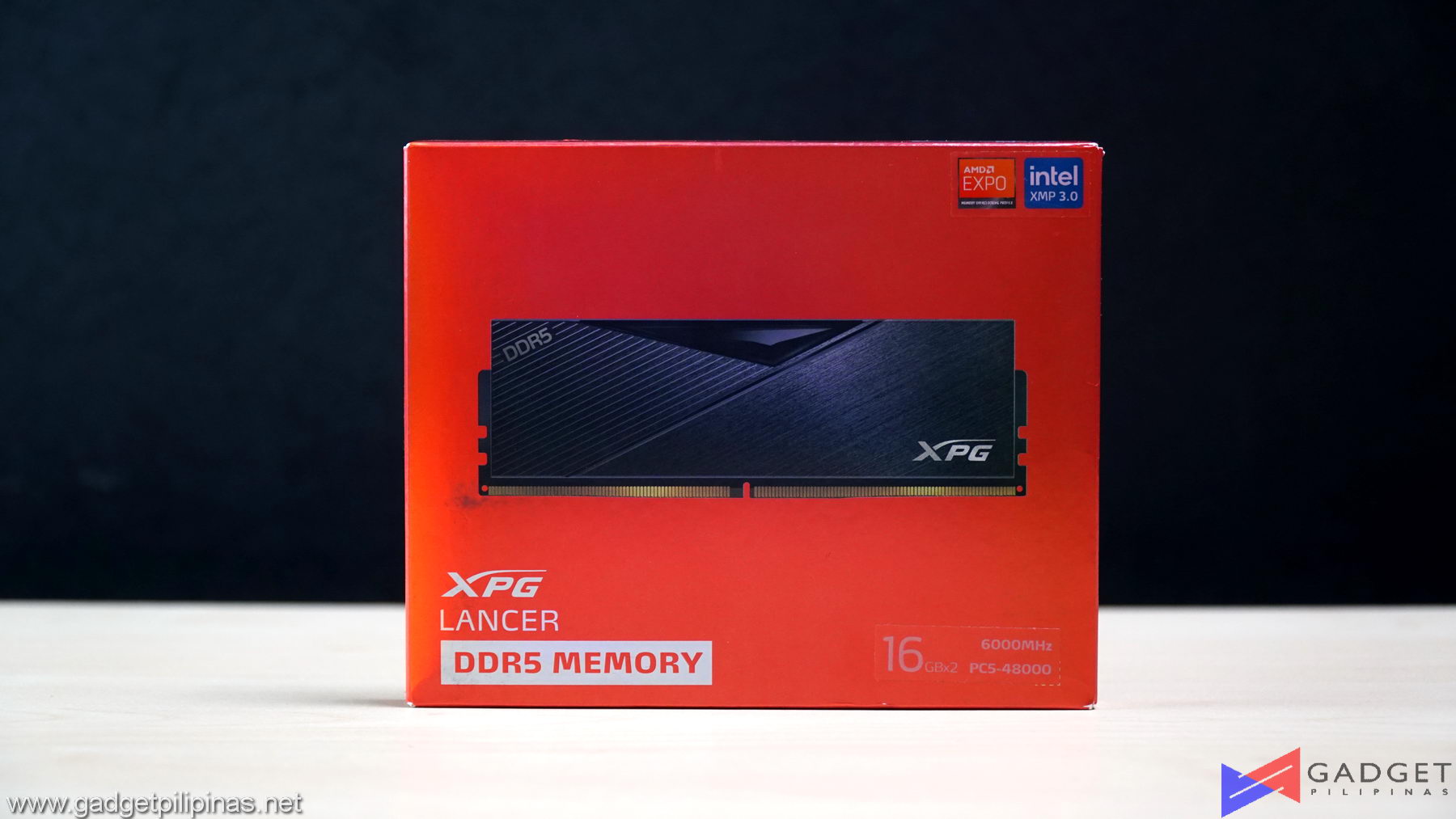
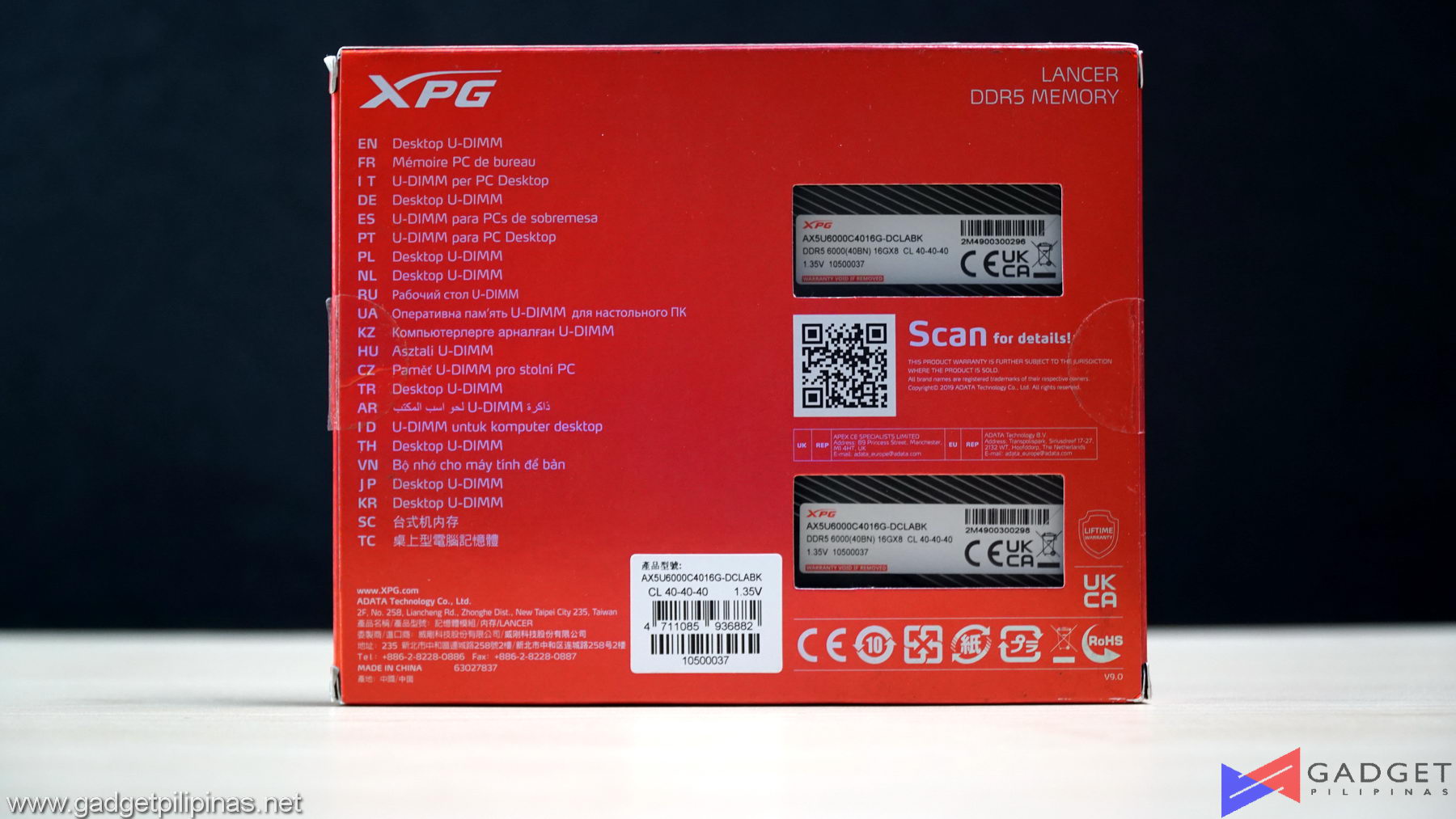
The XPG Lancer comes in a fancy and shiny red packaging with a render of the Lancer DDR5 memory at the front. Like most brands, the specific configuration of the kit is shown via a sticker positioned on the lower right side of the box. There are also badges showing EXPO and XMP compatibility – this makes the XPG Lancer DDR5 memory one of the few memory kits that have both EXPO and Intel XMP support as most brands have specific kits that are for Intel and AMD.
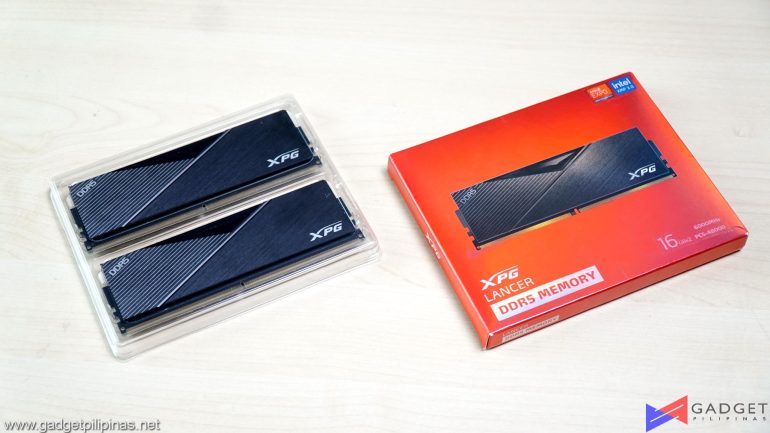
Apart from the memory modules themselves, there are no additional items included like stickers or any documentation.
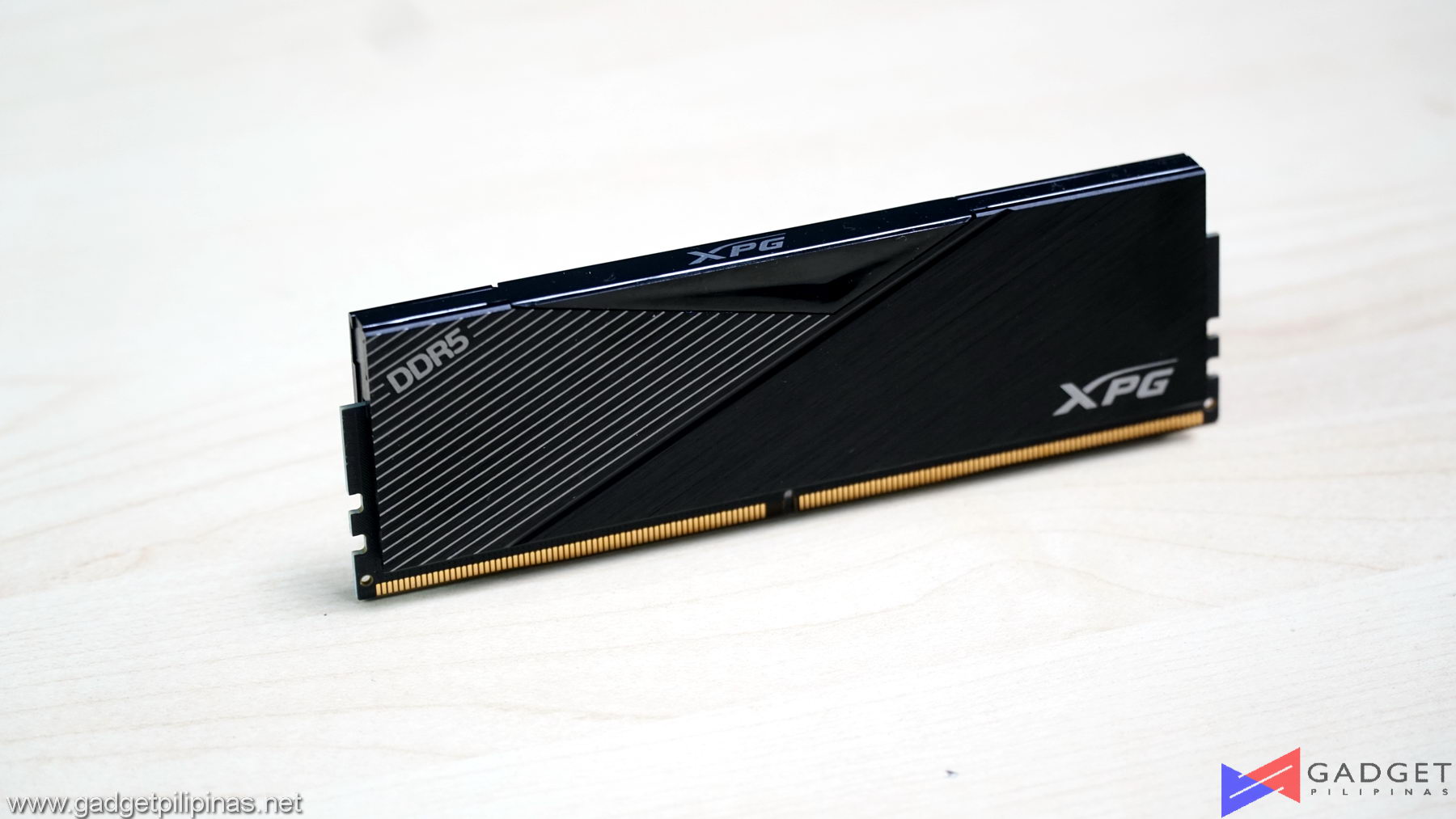
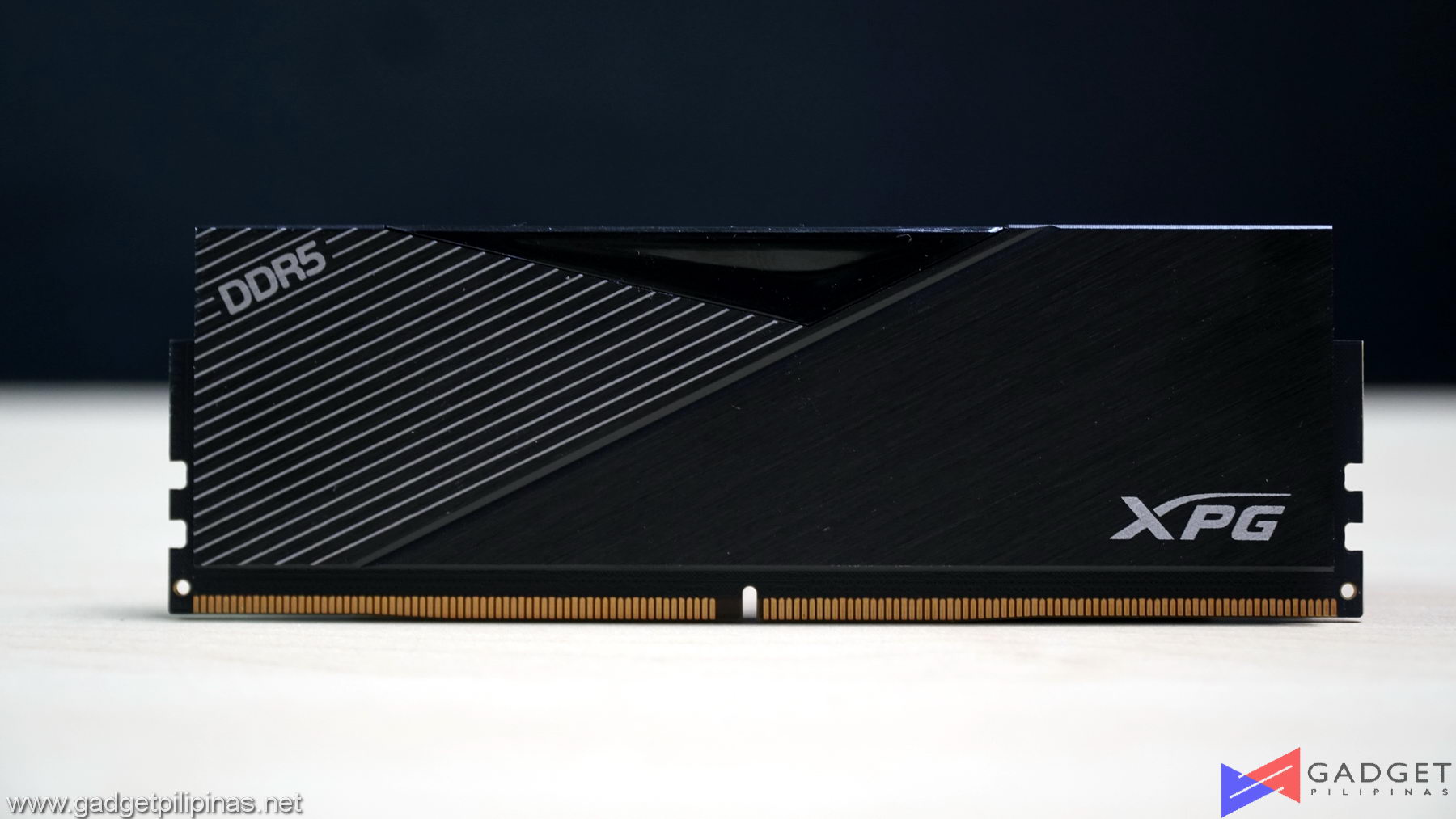
The XPG Lancer has one of the cleanest yet stylish-looking heat-spreader designs in the market. I for one don’t mind the lack of RGB as its design will clearly fit any build theme.
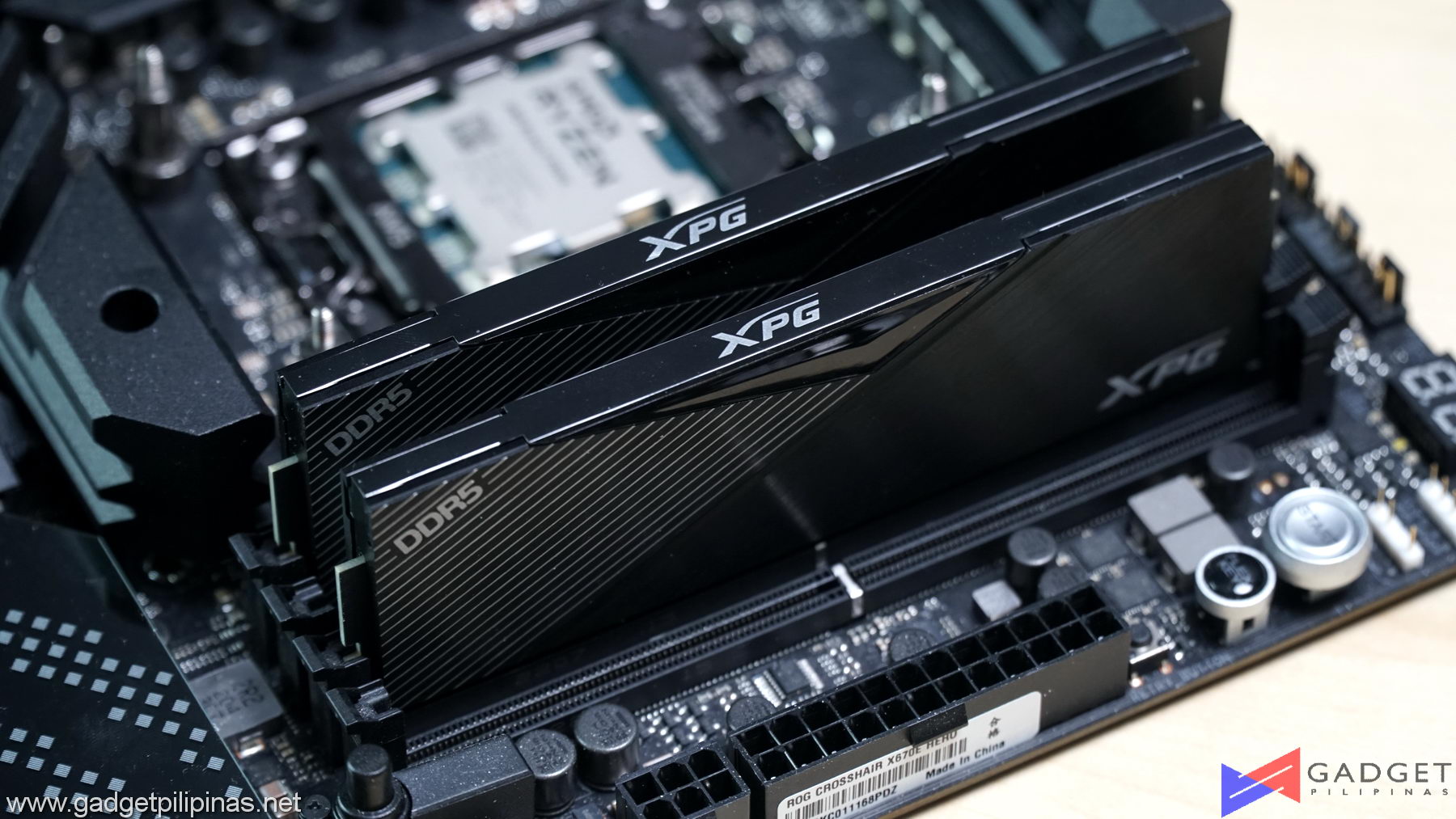
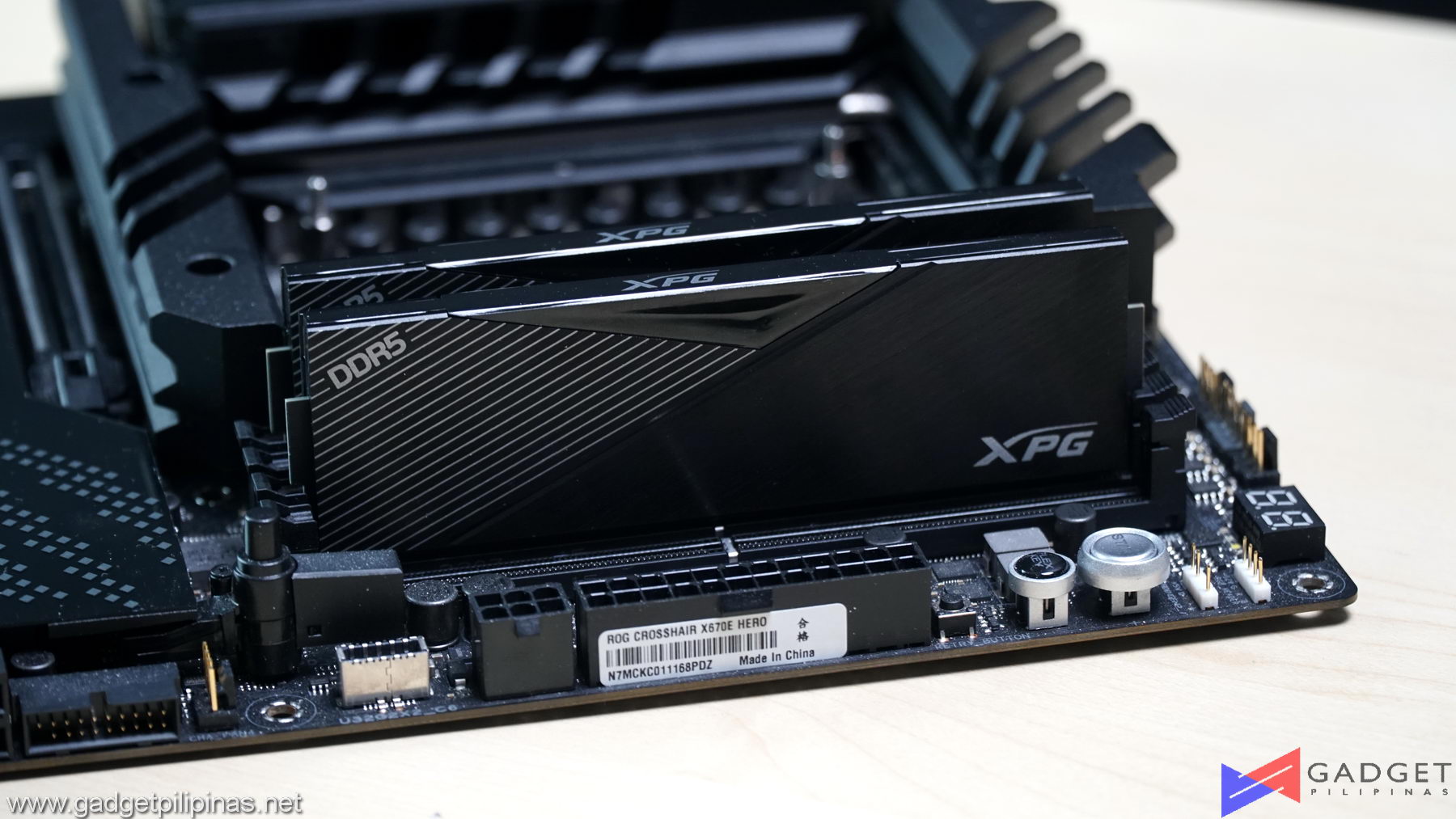
As mentioned earlier, its clean design makes it fit almost every build. Its xx mm height also makes it compatible with most air coolers.
Benchmark Setup and Test Methodology
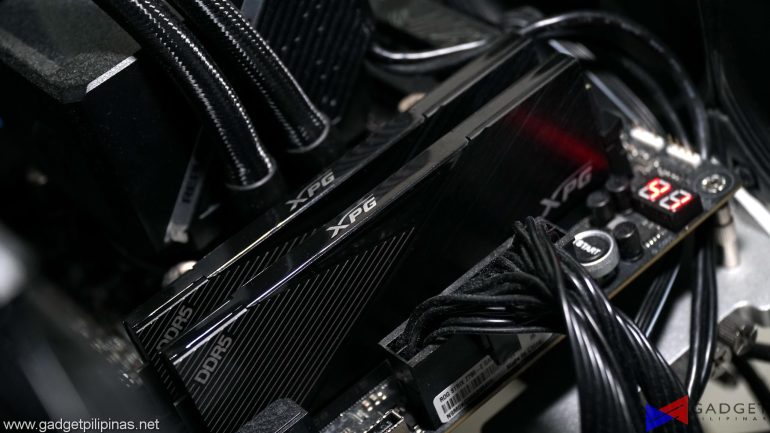
Gadget Pilipinas’ testing philosophy is to provide detail-oriented results as accurately as possible so that our readers can replicate our tests given that these conditions are met. Different benchmarking apps and sequences are used depending on the tested component or device.
| CPU | Intel Core i9 13900K |
| COOLER | ASUS ROG RYUJIN II 360mm V2 – Noctua NT-H2 Thermal Paste |
| MOTHERBOARD | ASUS ROG Strix Z790-E Gaming |
| MEMORY | Kingston Fury Beast RGB 32GB(2x16GB) 6000 MHz DDR5 |
| GPUs | Nvidia RTX 4090 FE |
| STORAGE | Kingston KC3000 1TB PCI-E Gen 4 SSD |
| POWER SUPPLY | FSP HYDRO GT PRO 1000W Gold ATX 3.0 |
| OPERATING SYSTEM | Windows 11 Pro Build 22H2 |
We use CapFrameX 1.7.1 as our primary FPS capture and analysis tool for all our gaming benchmarks. The latest build version of Windows 11 Pro and WHQL-certified drivers are used for our benchmarks. Readings such as temperatures and power draws are recorded using HWINFO64, and other relevant software for cross-checking.
Adata XPG LANCER DDR5 Benchmarks
3DMark Firestrike & Timespy
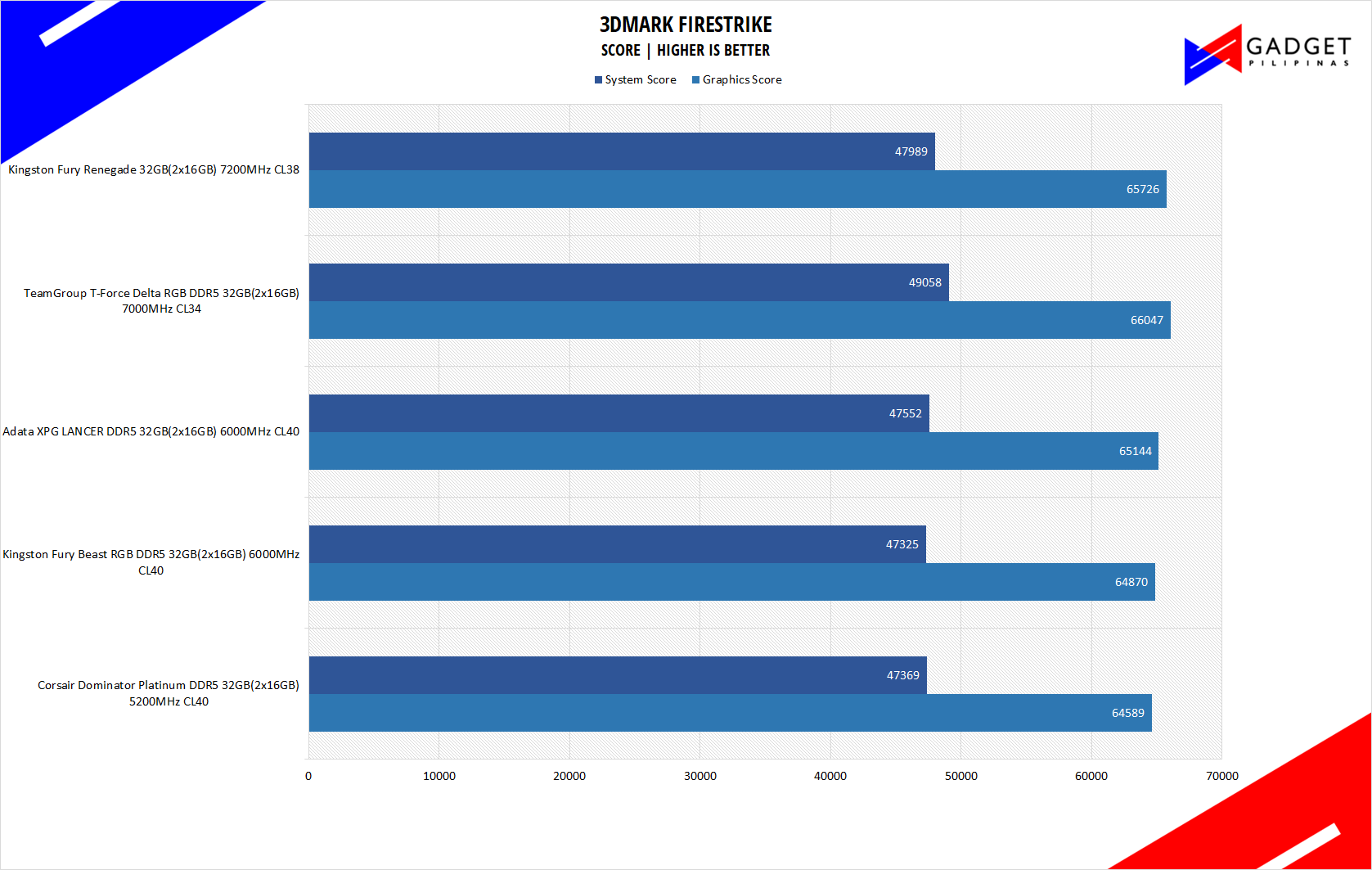
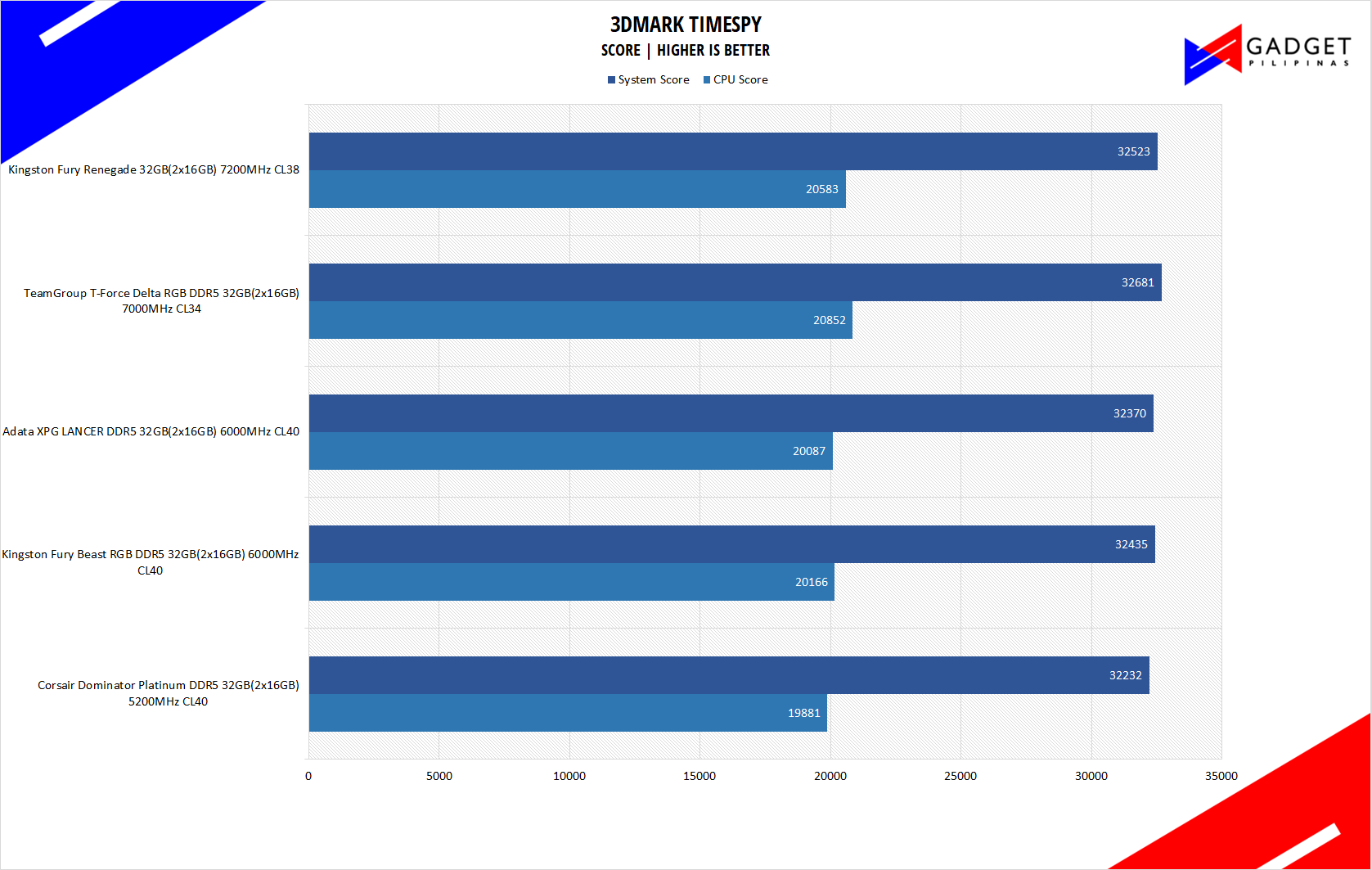
3DMark is the go-to benchmark for gamers because of the ability to share and compare results online.
SuperPI 32M
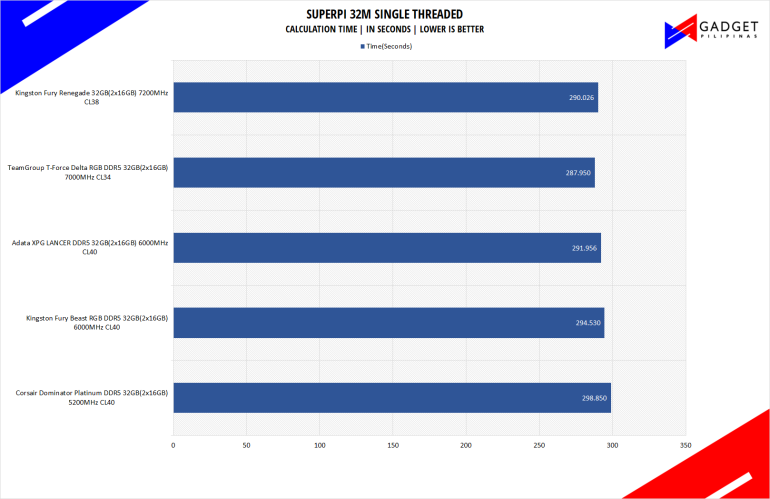
SuperPI is a single-threaded benchmark application that lets the CPU calculate Pi(π) to the nth digit. In this benchmark, we selected the Pi calculation to 32M, the highest available for the app.
CINEBENCH R23
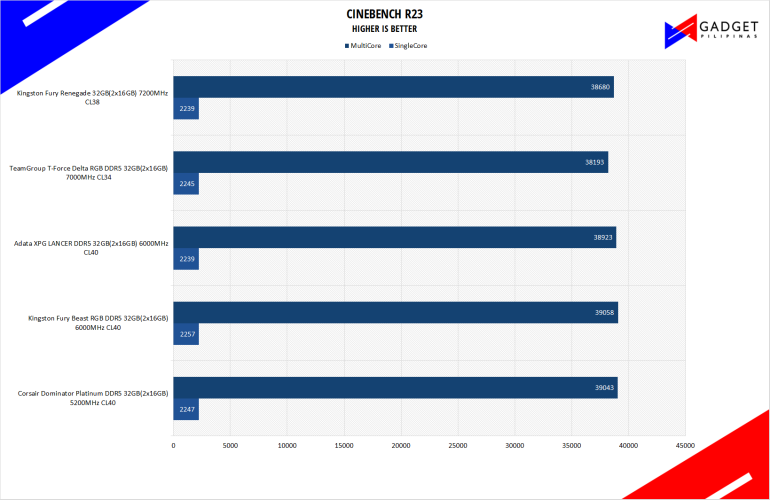
Maxon’s Cinebench benchmark is one of the most iconic benchmark applications used by reviewers and enthusiasts. The latest Cinebench R23 uses the latest rendering architectures, including Intel’s Embree ray tracing technology and other advanced features from AMD and Intel that allow users to render the same scene on the same hard.
PROCYON
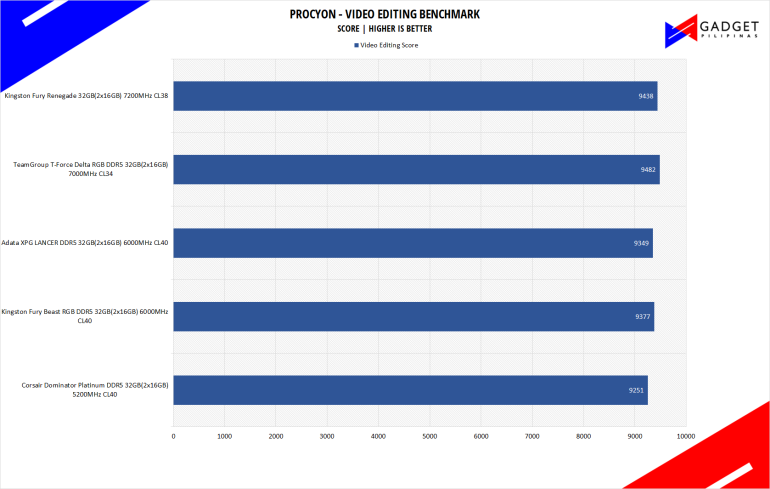
Procyon benchmark suite is developed by the UL, the same team behind 3DMark and PCMark benchmarks. The UL Procycon video editing benchmark uses Adobe Premiere in a typical video editing workflow. The benchmark starts by importing two video project files with various edits, adjustments, and effects – the second project uses several GPU-accelerated effects. Each project is exported in 1080p with H.264 encoding and again in 4K with HEVC H.265. The reported score is based on the time taken to export all four videos.
wPrime 1024M
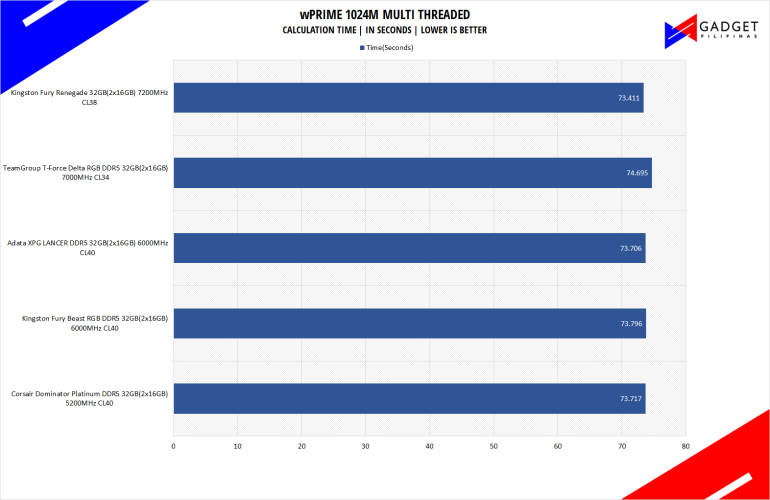
wPrime is a benchmark tool similar to SuperPI, but the former takes on finding prime numbers using Newton’s Method. The benchmark is set to calculate 1024 million prime numbers, and the performance is measured according to calculation time.
V-RAY
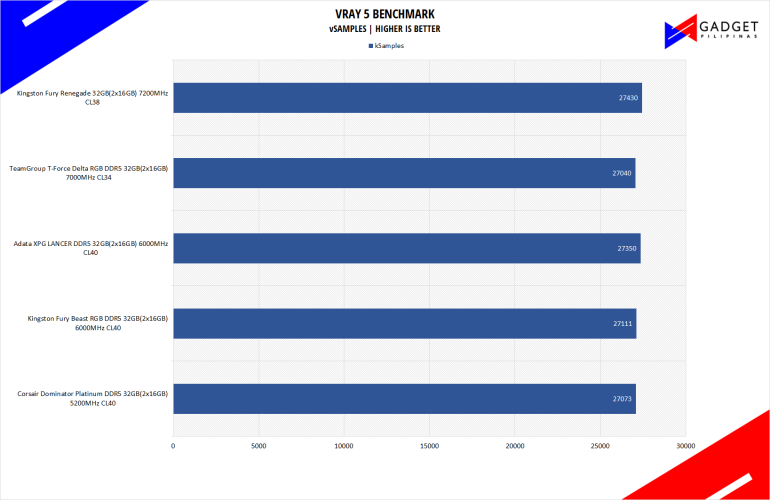
V-Ray Benchmark is a stand-alone version of V-Ray developed by Chaos Group. It is designed to test the CPU and GPU by rendering sample scenes at a fixed amount of time. V-Ray is a plug-in mostly utilized by 3D computer graphics software applications mainly for industrial design, product design, architecture, film, and video game production. V-Ray is not limited to 64-threads as it supports multi and mega-threading.
BLENDER
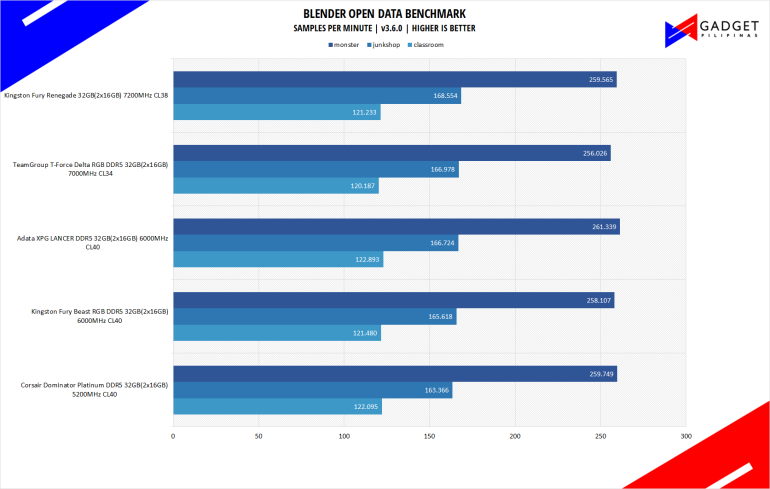
Blender is a widely used, free, open-source 3D creation suite. It supports the whole 3D pipeline process from modeling, rigging, animation, simulation, rendering, and even motion tracking. Blender has become a standard for CPU benchmarks with the BMW27 and Classroom Scene most used. This prompted the company to release Blender Open Data Benchmark in 2018, a benchmark-specific version allowing users to run a preset benchmark and share the results online like 3DMark.
GeekBench 6
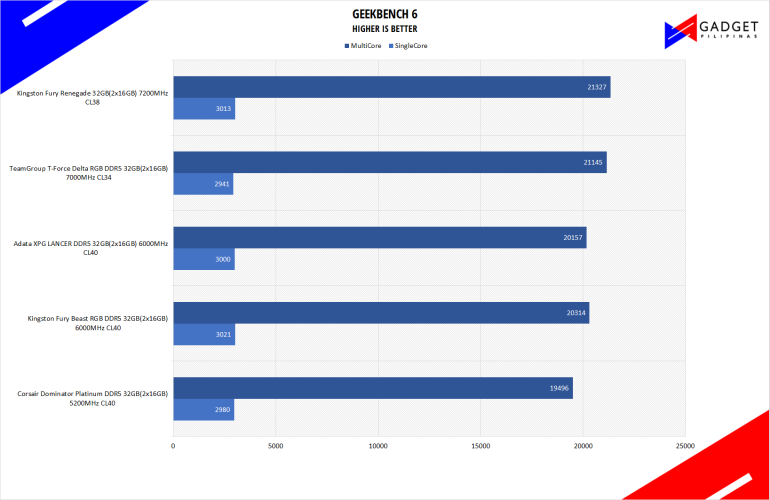
Geekbench is a multi-platform benchmark used to gauge CPU performance and compare them across Windows, Mac, and Mobile. Geekbench 6 is the latest version and doesn’t rely on memory more than the previous Geekbench 4, making it a great tool to measure both single-core and multi-core CPU performance.
AIDA64 EXTREME MEMORY BENCHMARK
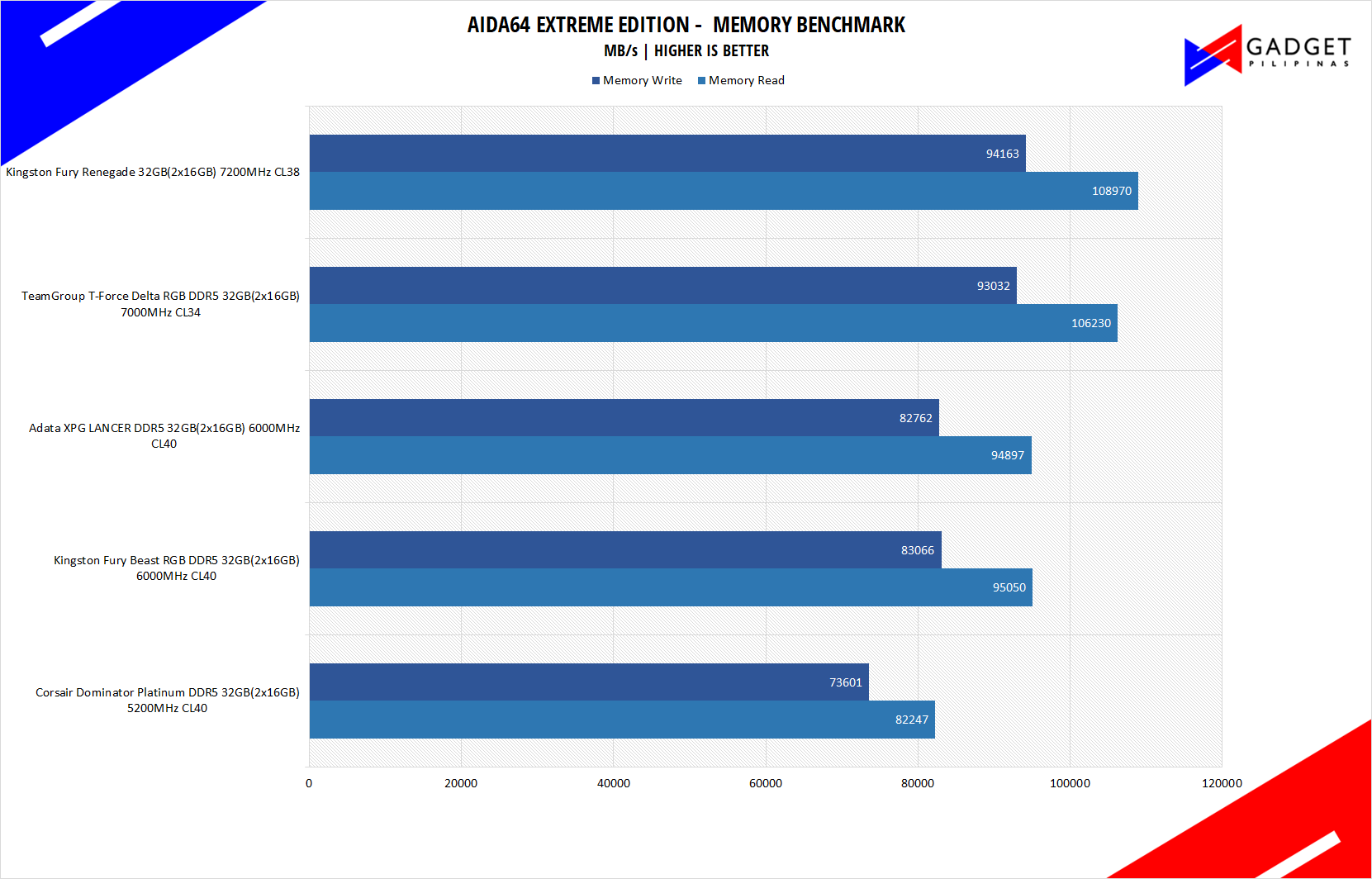
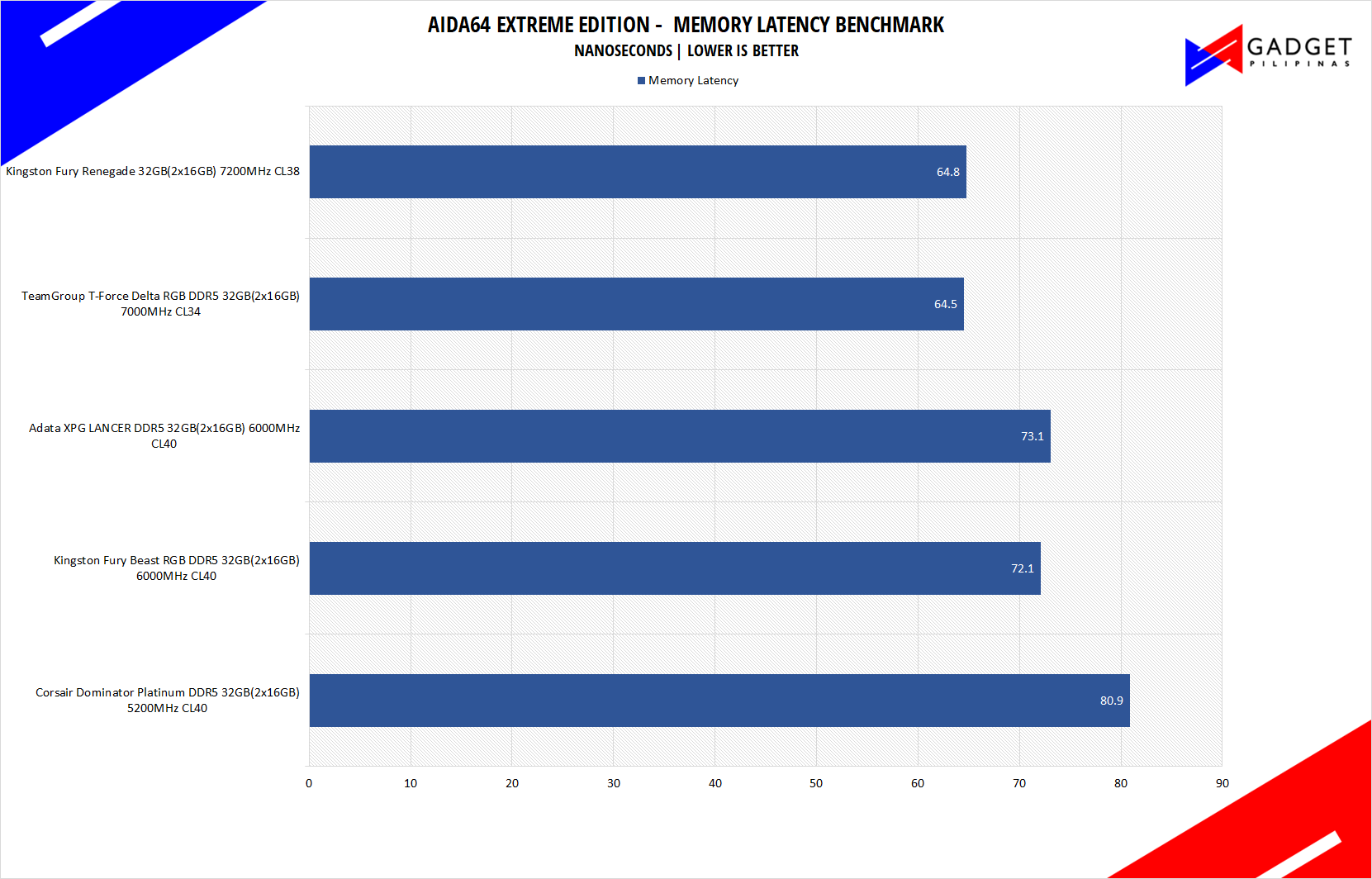
AIDA64 is a very popular and powerful monitoring tool, as well as a benchmarking application. AIDA64 is commonly used to stress test CPUs, especially testing if an overclock is stable. We used AIDA64’s Memory Benchmark to measure the data transfer bandwidth of the system memory.
PCMark10
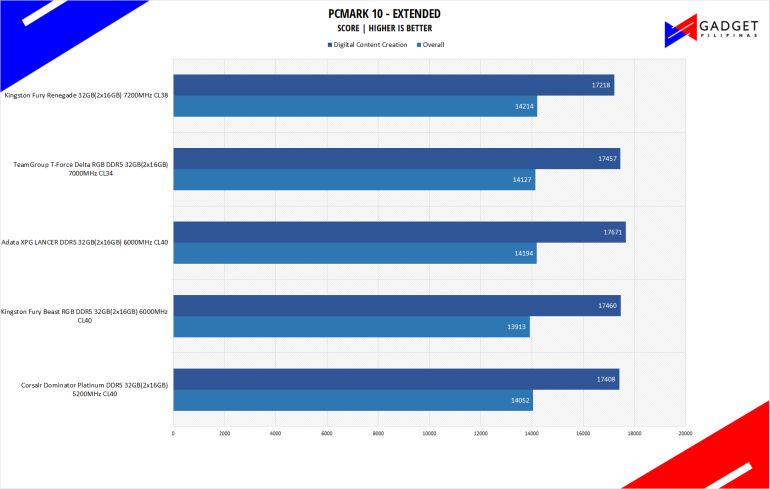
From the same developers of the popular game benchmarking tool 3DMark, PCMark 10 is a benchmarking app for measuring a whole PC’s performance. It covers a wide variety of tests to reflect common tasks performed in a modern workplace. We selected PCMark 10’s extended benchmark and reported both the overall score and Digital Content Creation Score.
CORONA RENDERER
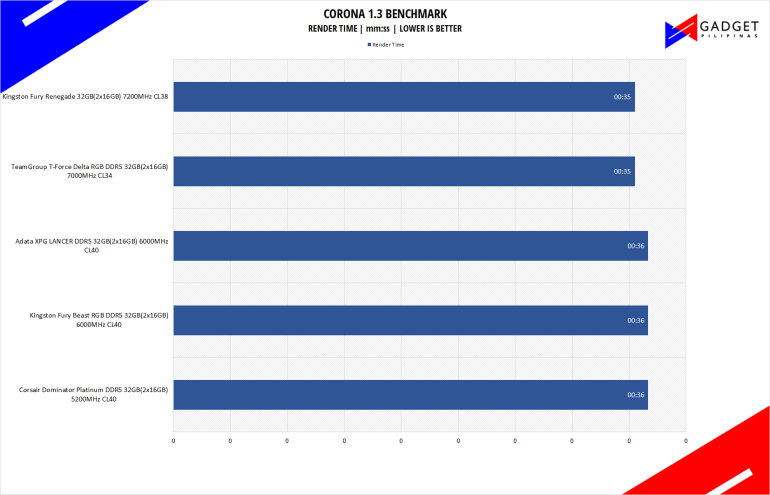
Corona Renderer is an unbiased photorealistic render available for Autodesk 3Ds Max, Maxon Cinema 4D, and as a stand-alone application. Its popularity, similar to Blender, led Chaos Group to develop a benchmark version of the app which runs using Corona Renderer 1.3. Workstation systems, especially CPUs, can utilize Corona Benchmark as up to 72 threads can be used in the benchmark, making it very suitable for CPUs with various price segments.
PassMark 10.2
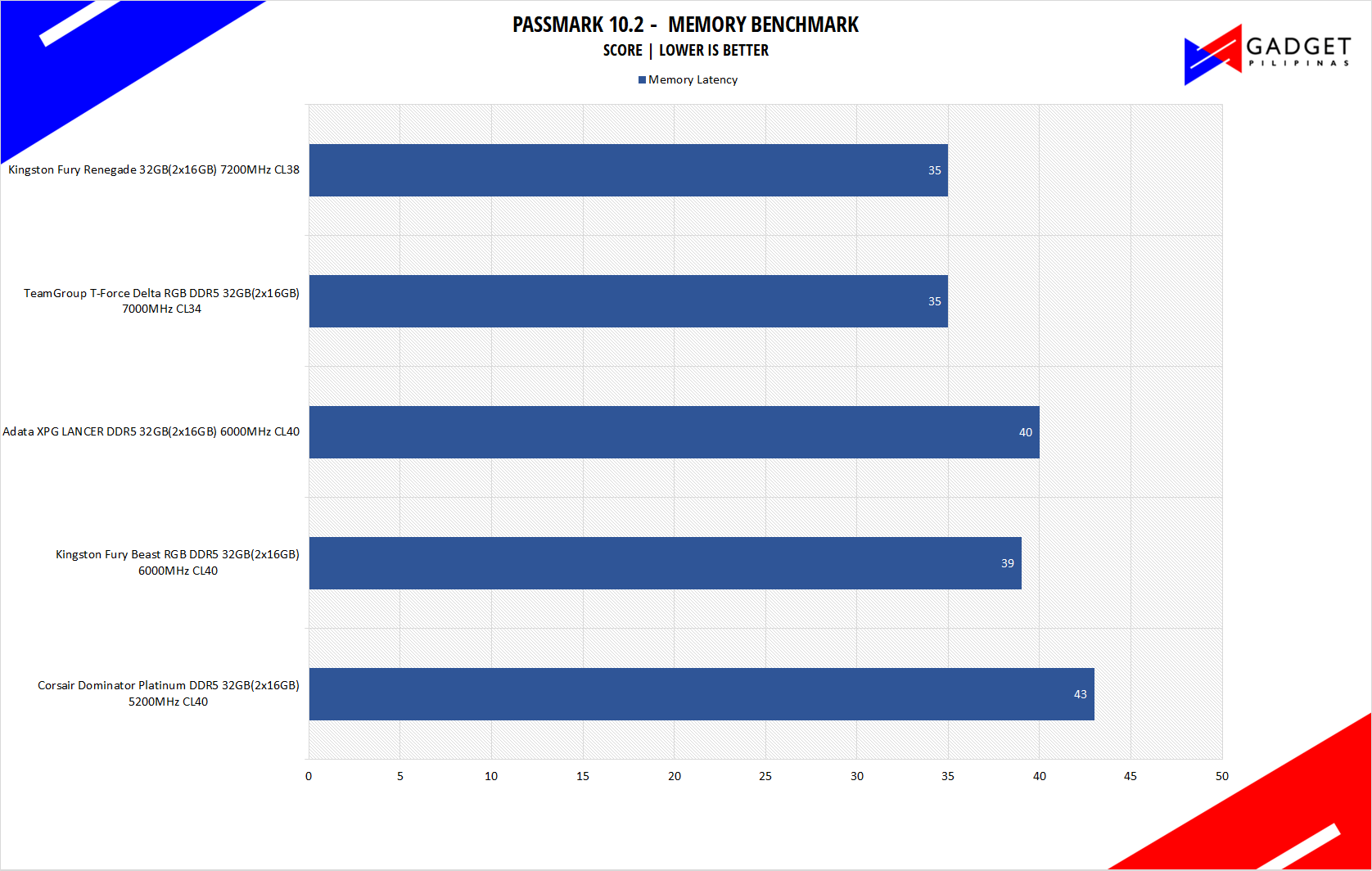
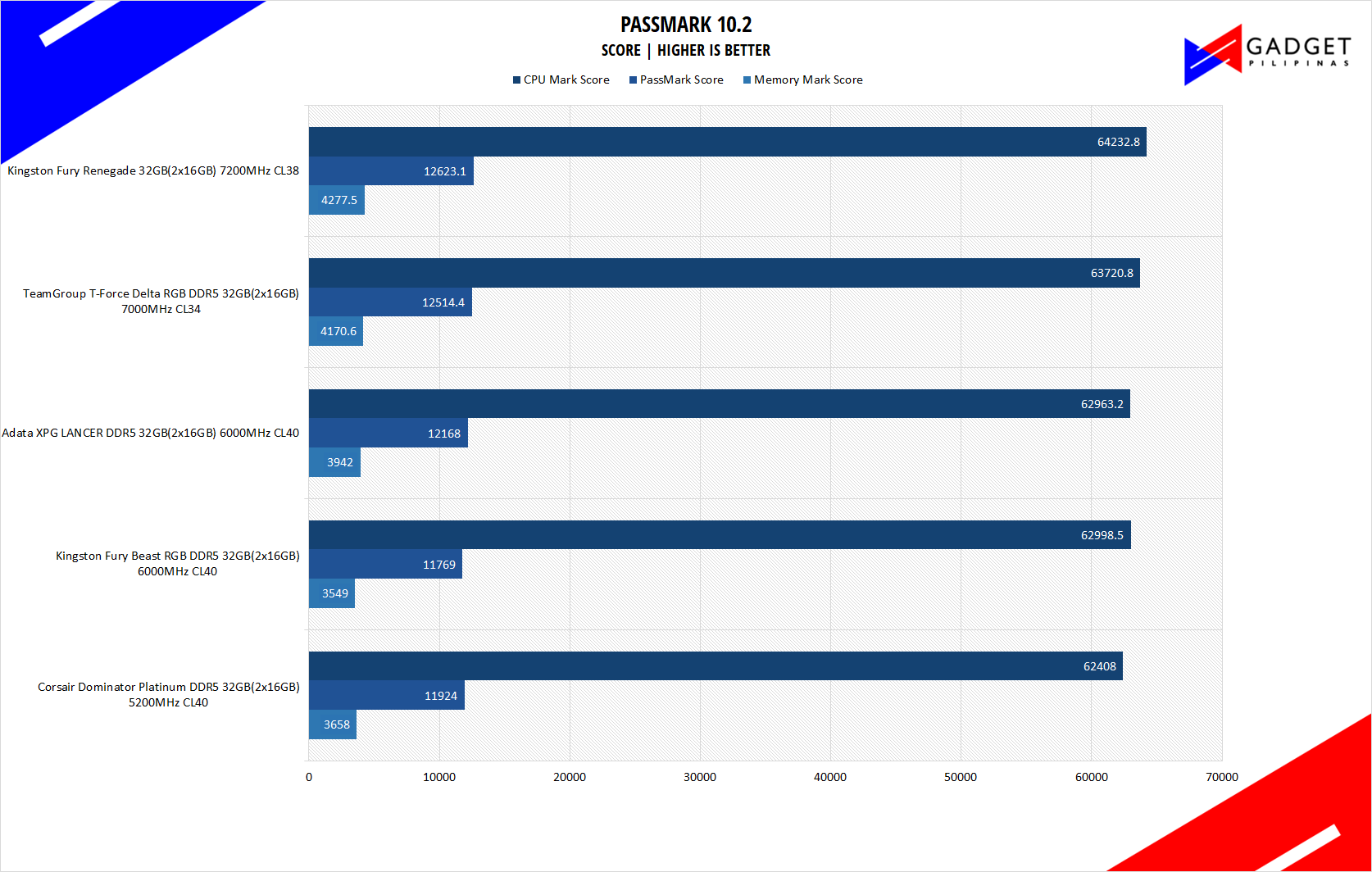
Passmark 10 provides a comprehensive suite of tests that evaluate various aspects of a system’s performance, including CPU, GPU, memory, and disk performance. Its automated testing process makes it accessible and efficient for reviewers to conduct benchmarks and analyze the performance of different systems.
BapCo CROSSMARK
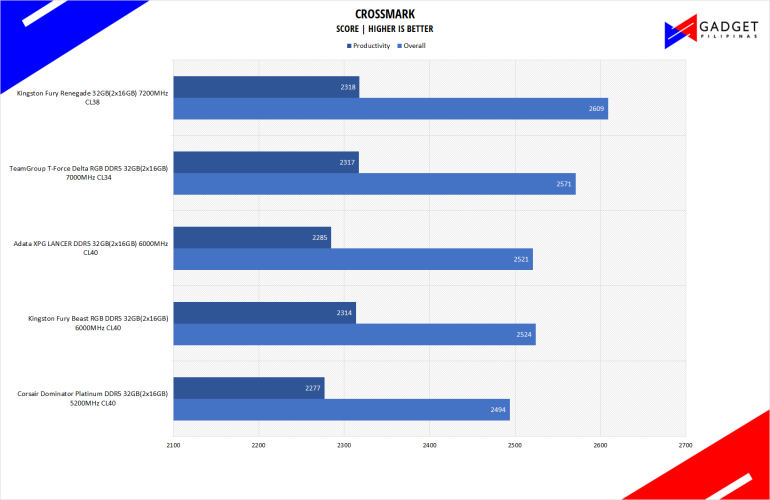
Crossmark is one of the few native cross-platform benchmark tools available for Windows, Android, Linux ChromeOS, iOS, and macOS. It measures overall system performance and system responsiveness using models of real-world applications making it a great comparison point across multiple platforms.
HANDBRAKE
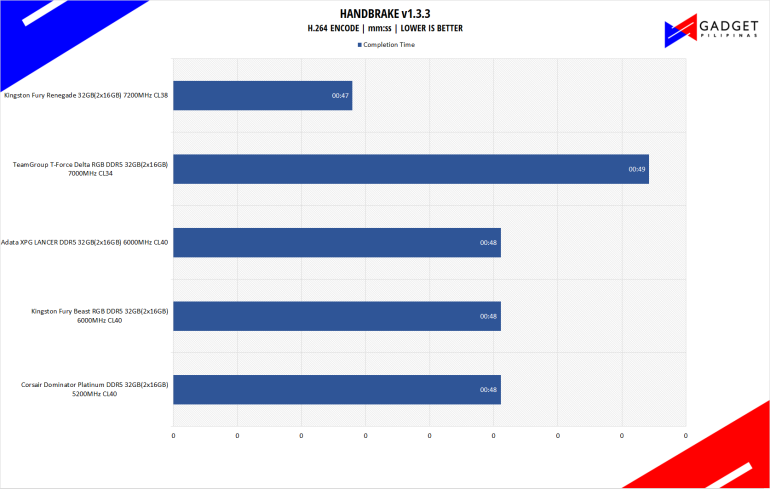
Handbrake is a top-rated open-source video conversion software that is used by professionals, enthusiasts, and even reviewers as a reference point mainly because of its wide variety of media codecs. The rise of streaming and blogging makes video content, both encoding, and transcoding important for these people, regardless of whether they’re seasoned professionals or just starting out. Handbrake also takes advantage of AVX-512 and OpenCL to accelerate certain types of media codecs. Our Handbrake benchmark converts a 500MB MP4 video to H.264 to measure the processor’s performance.
GOOGLE OCTANE 2.0
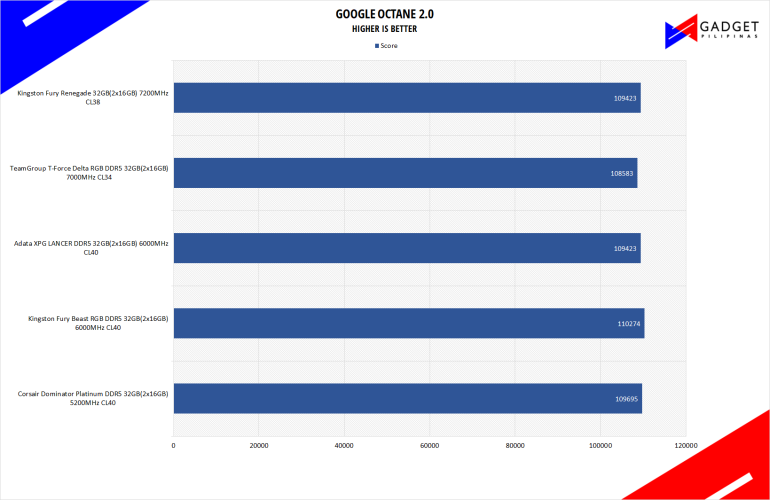
Google Octane 2.0 is a benchmark that measures a Javascript engine’s performance by running multiple tests representing different use cases of JavaScript applications. While Google Octane is retired and no longer maintained, it is still a good representation of today’s dynamic, interactive web applications. Our Google Octane 2.0 is run on Microsoft’s latest Chromium-based Edge browser.
Adata XPG LANCER DDR5 – Temperatures
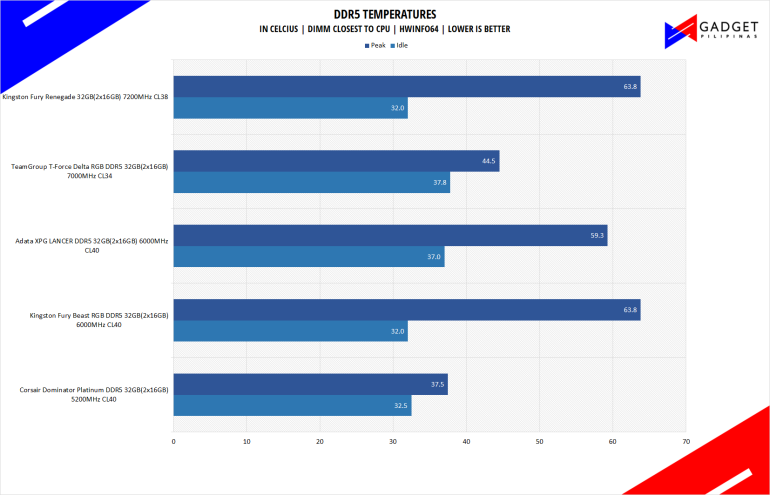
The Adata XPG LANCER DDR5 managed to peak at 59.3°C throughout our testing making it one of the hottest DDR5 kits in our test suite. However, it’s worth nothing that 59.3°C is still relatively low as far as DDR5 temperatures goes as you a lot of headroom before reaching the 95°C TJMax JEDEC standard especially if you want to overclock.
Conclusion
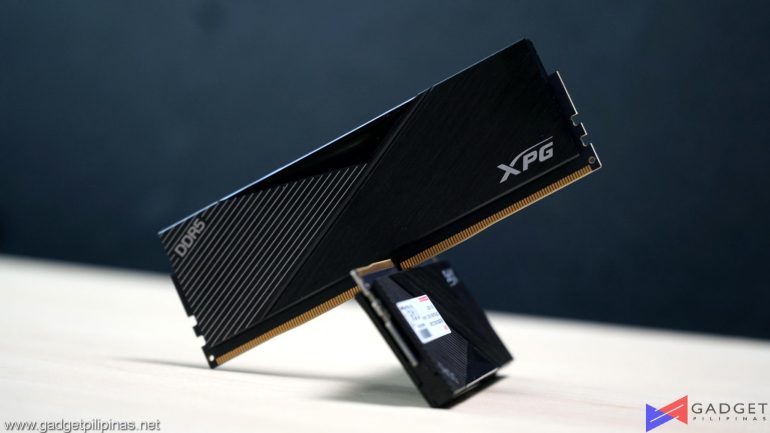
Overall, the Adata XPG Lancer DDR5 performs on par and in some cases better than similarly specced kits thanks to the balance of high frequency, low latency timings, cool temps and price. Speaking of price, our XPG Lancer DDR5 6000 MT/s C30 kit retails for Php 7,195 on Lazada making it one of the cheapest priced 32GB(2x16GB) DDR5-6000 kit in the market – and if you spend a bit more you’d get aRGB lighting tighter timings for the RGB variant. What seals the deal with the XPG Lancer DDR5 is its support with both AMD EXPO and Intel XMP 3.0 as users can switch platforms without the extra cost of getting another compatible kit. Not to mention the availability of the white variant which is still considerably rare for DDR5 memory modules. That said, the XPG Lancer DDR5 is an ideal memory if you’re looking for a high performance, low cost memory without having to worry about platform compatibility all while having good aesthetics that would first most, if not all build themes.
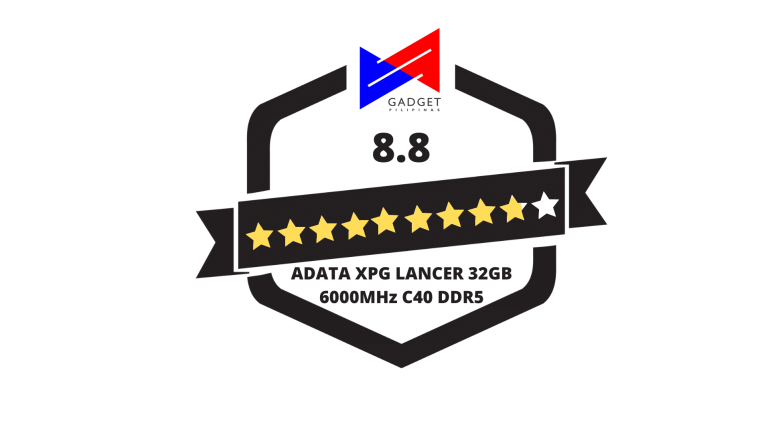
Overall, the Adata XPG Lancer DDR5 performs on par and in some cases better than similarly specced kits thanks to the balance of high frequency, low latency timings, cool temps and price. Speaking of price, our XPG Lancer DDR5 6000 MT/s C30 kit retails for Php 7,195 on Lazada making it one of the cheapest priced 32GB(2x16GB) DDR5-6000 kit in the market – and if you spend a bit more you’d get aRGB lighting tighter timings for the RGB variant. What seals the deal with the XPG Lancer DDR5 is its support with both AMD EXPO and Intel XMP 3.0 as users can switch platforms without the extra cost of getting another compatible kit. Not to mention the availability of the white variant which is still considerably rare for DDR5 memory modules. That said, the XPG Lancer DDR5 is an ideal memory if you’re looking for a high performance, low cost memory without having to worry about platform compatibility all while having good aesthetics that would first most, if not all build themes.
- Decent Aesthetics
- Support for Both XMP and EXPO
- Various Speed and Latency configurations
- Competitive Pricing
- Only available in 32GB kits
- Availability – Not all configurations are available in the PH Market
Grant is a Financial Management graduate from UST. His passion for gadgets and tech crossed him over in the industry where he could apply his knowledge as an enthusiast and in-depth analytic skills as a Finance Major. His passion allows him to earn at the same time help Gadget Pilipinas' readers in making smart, value-based decisions and purchases with his reviews and guides.

